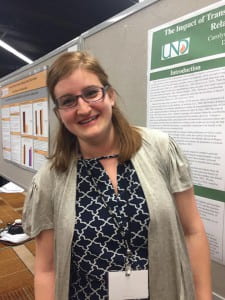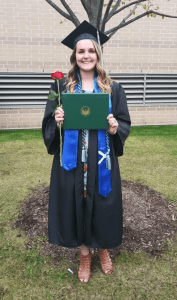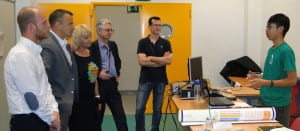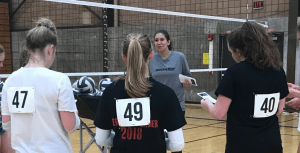What first interested you in forensic psychology?
- After graduating from the University of Wisconsin-Green Bay, where I completed my undergraduate degree, I obtained full-time employment as a Case-Manager at Marion House, a group home for pregnant and parenting adolescents.
- Case-Managers were responsible for a multitude of activities; we coordinated all of a client, and her child(ren)’s needs. These needs included medical, dental, counseling, AODA, legal, educational, nutritional, legal, etc. We were also responsible for maintaining contact with our client’s social workers and/or parole officers.
- My interest in forensic psychology began during my employment at Marion House. Most of our clients came from underprivileged backgrounds, and many of them with criminal backgrounds. Due to my limited, prior knowledge and experience with the legal system, I found that this was the area in which I most struggled in aiding and advocating for my clients.
- Additionally, I was fascinated by learning about the reasons behind their behavior, as well as trying to understand how parole officers and/or social workers would try to predict my client’s future behavior (e.g., via a risk assessment).
- I decided to apply to graduate programs in forensic psychology in order to better serve my clients.
What did you learn in your undergraduate career that contributed to your current knowledge?
- Classes from UWGB that best prepared me for graduate school included: Research Methods/Experimental Psychology, Statistics, Test and Measurement, Social Psychology, and Abnormal Psychology.
- Classes from UWGB that best prepared me for my employment (past and present): Research Methods/Experimental Psychology, Statistics, Tests and Measurement, all of my developmental courses, as well as any cross-cultural courses I took.
- I also worked as a research assistant and completed an internship during my last semester at UWGB and learned a lot of valuable skills in each of these positions. If I could go back, I would have spent more time working on research as an undergraduate student. I would also have completed an independent study project.
Do you have any advice for any aspiring forensic psychologists?
- Participate in as much research as possible. Even if it is unrelated to forensic psychology, the skills you learn are invaluable and can easily translate to another subfield within psychology. Try networking with forensic psychologists working in the field to get a more realistic sense of what forensic psychologists do and what skills will be most beneficial for you to gain experience/knowledge with during graduate school.
For more information specifically on Graduate School see what advice Gretchen has about graduate school related to counseling psychology.




